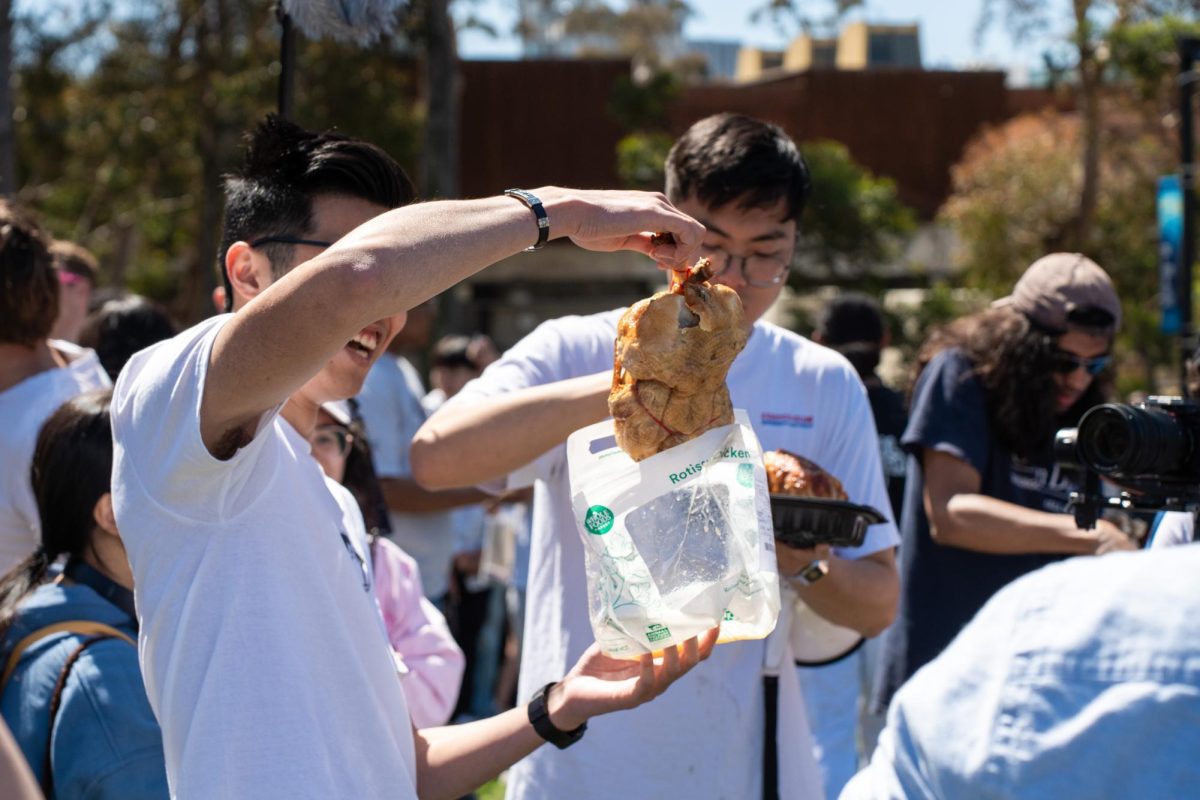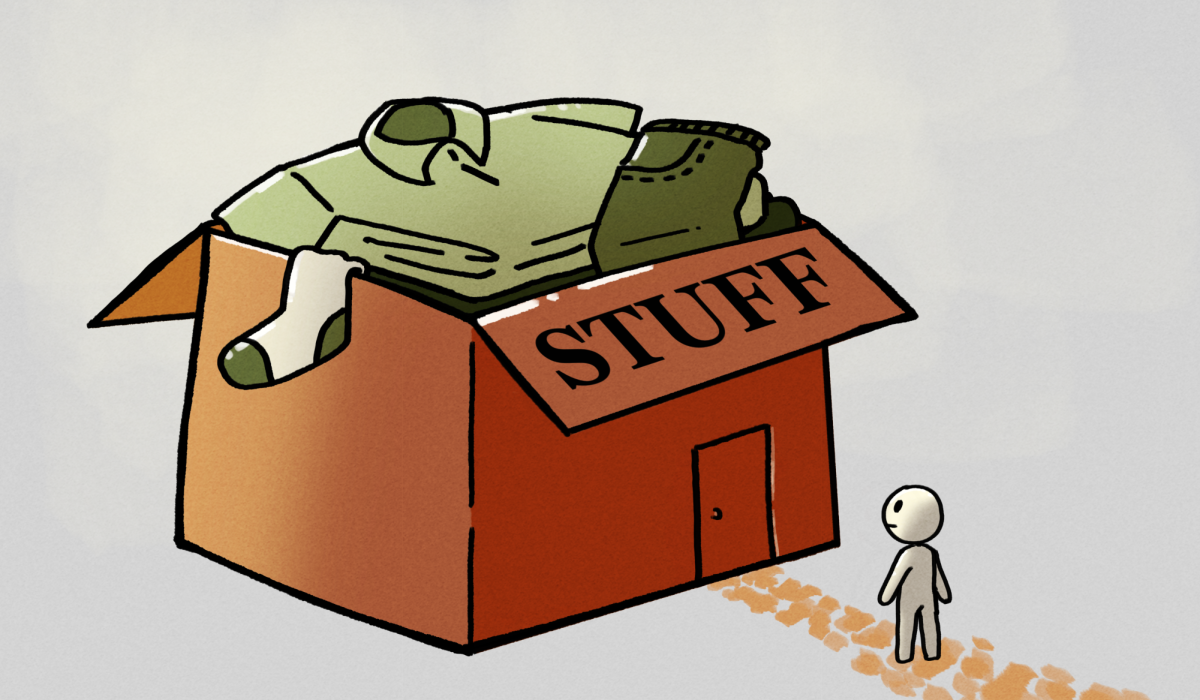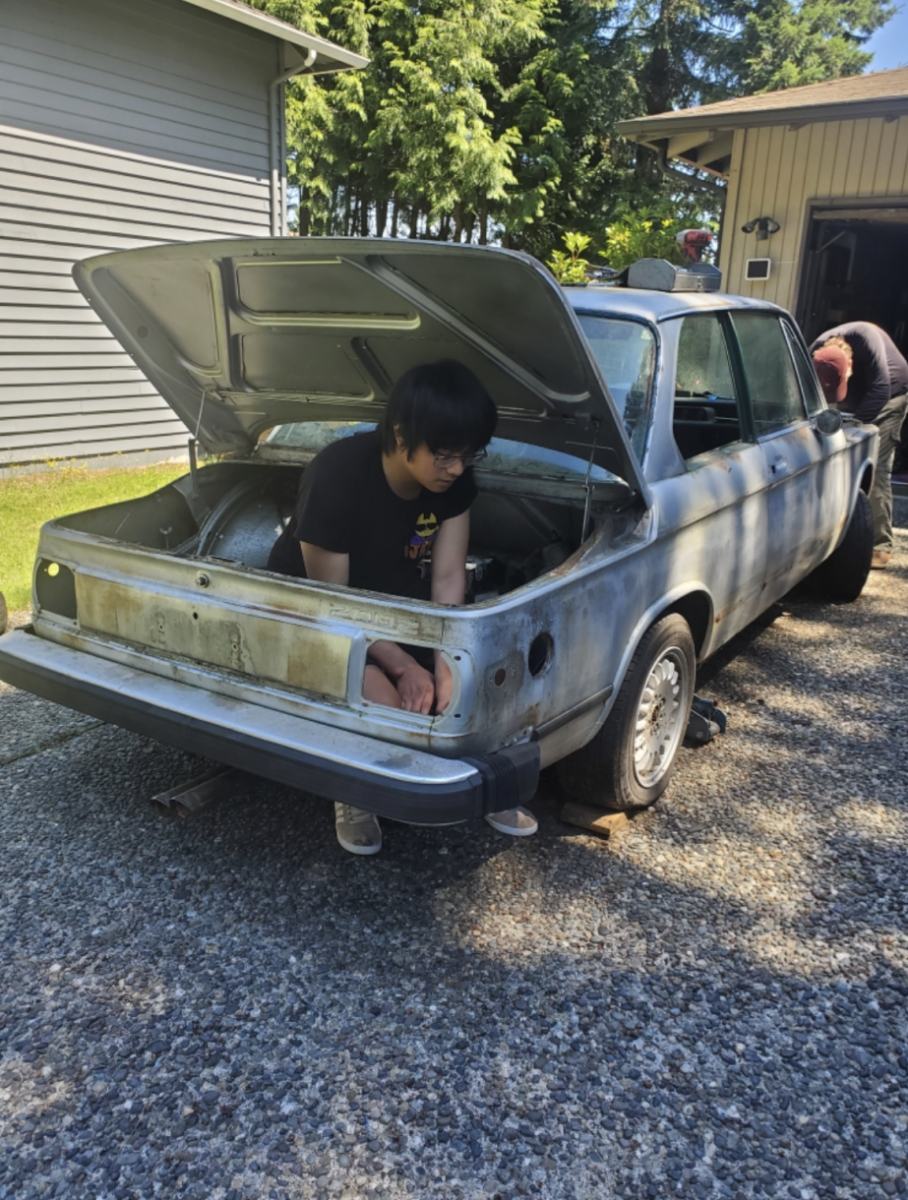Don’t forget to vote on June 8.
There will be on-campus polling places at Price Center East, Muir College’s Half-Dome Lounge and Warren College’s Student Activity Center.
GOVERNOR
 Republican Candidate: Steve Poizner
Republican Candidate: Steve Poizner
On the surface, there is little that distinguishes the Republican Party’s two leading gubernatorial candidates from one another: Steve Poizner and Meg Whitman are both noted business leaders, have plenty of personal wealth to bolster their campaigns and have committed to slamming the other in extensive ad campaigns.
The priorities they’ve outlined so far aren’t too different, either. Both candidates have stated their intent to crack down on immigration reform, pursue tax cuts and reduce state spending in an effort to remedy California’s ailing economy.
But a closer examination reveals that — while Whitman is declaredly in support of many of the same fiscal proposals touted by Poizner — she has put almost no effort into fleshing out any real plans for implementing and maintaining the type of budgetary reform needed to re-establish our state as a sustainable economic powerhouse.
Poizner, on the other hand, has spent much of his campaign honing a well-defined, step-by-step plan to boost internal revenue and cut from California’s bloated state bureaucracy. His most notable proposal — a 10 percent across-the-board tax cut that would reduce personal income tax and state sales tax — is a bold move designed to stimulate individual spending in California’s darkest financial hour.
Though it’s pretty shortsighted to slash from two of the state’s most important revenue sources, Poizner at least has a plan. The way Whitman’s running her campaign, there’s no telling what she might do if she snatches the governor’s seat.
Aside from his irrationally conservative budget proposal, Poizner shows a few other red flags. He’s a staunch proponent of harsh immigration regulations. He’s said he would dramatically limit access to public universities for illegal aliens, and recently declared his support for Arizona’s iron-fisted new immigration laws.
Poizner has also shown himself to be more of a social conservative than he’d like the state’s left-leaning voter base to think, supporting California’s ongoing ban on gay marriage and opposing marijuana legalization.
It won’t be social issues that define the Republican primary race, though. With the state economy in shambles and a legislature incapable of forging any effective solutions, the candidate who comes out on top is going to be the one who demonstrates clear ideas for how to whip California back into shape. In that respect, Poizner is our man.
 Democratic Candidate: Jerry Brown
Democratic Candidate: Jerry Brown
Son to a former California governor — and lifted into the position himself after the Reagan regime — Democrat Jerry Brown was born for this stuff.
After 40-plus years in state government, he is a living caricature of the steadfast liberal “nice guy,” with a husky-voiced sincerity and track record that makes him hard to pick apart as anything but the real thing.
At this point, though, Brown’s status as default Sacramento nobility gives his second stab at governorship an air of sketchiness. He’s been too cocky to release a single game plan for the coming term, meanwhile flicking all other legitimate Democratic contenders out of the race with a lifetime of special-interest connections to back him.
Still, even if all we have to go off are Brown’s past accomplishments, they are groundbreaking and many.
Brown gave the Cesar Chavez worker-rights movement a leg up by refusing to send state troopers in to break up immigrant protests — essentially bringing agriculture into the mainstream push for labor rights. He also halted the growth of Pacific Gas and Electric, forcing the power mogul to run energy-saving campaigns instead of building more plants.
Of the six remaining candidates, not one has a scrap of Brown’s experience — nor, for that matter, a fighting chance in Monday’s Democratic primary. Immigrant rights and energy conservation are still two of the hottest issues on the table, and Brown proved to us long ago that his heart and head are in the right place regarding all that which matters most.
U.S. SENATOR
Republican Candidate: Tom Campbell
Tom Campbell’s strengths lie in his thoughtfulness and experience. Though his fiscally conservative proposals to curb federal spending may not make for the fastest path to economic recovery, we can rest assured that — given his academic and political experience — they are at least informed enough to transcend cheap bids for support.
More importantly, his surprising support for the right to abortion and gay marriage suggests he is more concerned with expanding social liberties than pushing a moral agenda. He may still want to throw his weight behind privatized medical care and the construction of a physical barrier along California’s border with Mexico — overly simple suggestions to complex problems — but overall, he’s less extreme on social issues than main Republican contender and former Hewlett-Packard CEO Carly Fiorina.
Fiorina has proven quite the staunch conservative: She not only wants to keep the Guantanamo Bay prison in business, but is responsible for what is quite possibly the most absurd campaign attack ad of all time (Google “Tom Campbell wolf in sheep’s clothing”). We’ll stick with the lesser of two Republicans, thank you very much.
Democratic Candidate: Barbara Boxer
Now gunning for her fourth term as senator, it’s become increasingly clear that Sen. Barbara Boxer (D-CA) has gotten a little too comfortable in her legislative high chair.
Though she’s been a steadfast advocate for key progressive policies like environmental regulation, educational reform and the right to choose, she’s never been the most creative or dynamic state leader. Her careful record as senator indicates she’s likely to follow whatever new plan her Democratic counterparts come up with next rather than pursue an issue relevant to her constituents.
Regardless, Boxer’s only opponent — Slate Magazine blogger and political author Robert “Mickey” Klaus — is a long-shot contender for the Democratic nomination. Though we feel there’s always a need to challenge a politician who’s offered little in the way of flexible or energetic leadership, Klaus has yet to demonstrate any ability to transform from pensive writer to swift politician.
So, with a bit of reluctance, we offer our endorsement to Boxer. Come general-election season, no matter her Republican opponent, Boxer will be as good as it gets.
What 13 Would Do
Encourage property owners to make their buildings earthquake-resistant by offering them a tax break.
Why You Should Vote ‘Yes’
The safety-first measure is the closest thing to a no-brainer on the
primary ballot.
This has been a particularly lethal year in earthquake history — and our famously fault-lined state should take heed.
That’s why Proposition 13 — probably the least contentious measure on the ballot — is both timely and necessary. Currently, after a building is renovated for seismic safety, its property value (and tax) can be reassessed after 15 years. Though lawmakers may exempt certain buildings from this time limit to encourage property owners to sure up their structures, those renovators who are not exempt still face a spike in property taxes once the 15-year limit is up.
Prop. 13 would eliminate all time limits, so that renovations relating to earthquake safety would only affect a building’s property value after it has changed ownership. Most importantly, it would encourage property owners to make their buildings more earthquake resistant. If you want to slim your chances of being caught in a dilapidated brick building next time the floor starts trembling, vote ‘Yes’ on 13. It’s only a matter of time before the big one hits.
What 14 Would Do
Eliminate two-party primary elections by introducing an all-inclusive ballot; only the top two candidates would advance.
Why You Should Vote ‘Yes’
It’s an admirable step toward making the primary system a little more democratic.
Proposition 14 is an ambitious dreamer of an initiative. It aims to disintegrate the crippling partisanship in state politics that has bogged down the legislative process in California for far too long.
The way our primary system functions, only those voters who are registered as Democrats or Republicans (or who request a ballot from either party in advance) are eligible to participate in the election — causing candidates to reach out to supporters at the most extreme poles, who are generally more likely to show up for the first round.
Proposition 14 would change all that. Instead of receiving separate ballots, all voters — regardless of party affiliation — would make their choices on a long list of all the candidates. The two who received the most votes would advance to the general election.
While some proponents of the measure — such as Sen. Abel Maldonado (R-Santa Maria) — assert it would bring about the end of fractional partisan politics, it’s hardly that kind of definitive cure-all. Political allegiances won’t disappear anytime soon, nor will incessant partisan bickering.
What Proposition 14 could do, though, is still worth noting: The measure would involve more swing voters in the preliminary stages of the race, requiring politicians to reach out beyond their most loyal bases if they wish to advance.
In the end, we support any effort to democratize our election system, regardless of any freak upset it may cause down the line.
What 15 Would Do
Provide provisional public funding to state campaigns and levy an additional fee on lobbyist funding.
Why You Should Vote ‘Yes’
Candidates without financial
backing from special-interest groups might finally have a chance at a campaign.
It’s no secret: Special interests command California’s electoral system. Outside campaign contributions of up to $600 million make most politicians into the servants of powerful unions and corporations — rather than the voters who place them in office.
Proposition 15 is a small step toward eliminating this all-powerful and abusive system. The measure would strike down California’s ban on public financing of elections, instead starting up a pilot program to offer funds to candidates running for secretary of state, and eventually other offices, if things work out.
Best of all, the funds would be raised by charging Capitol lobbyists — not taxpayers themselves — additional fees for their exploits. Though it is a tentative move toward making our election system a bit more honest — and still limited to just one office — the measure would offer voters a glimpse at what politics could look like once the grip of special interests is loosened and candidates are beholden to the public. Smaller, less wealthy hopefuls would at least have a fraction of a chance.
Unfortunately, the measure provides for little oversight on how the candidates could spend the money they receive — potentially allowing for improper use of public funds. But campaign finance reform has to start somewhere, and Proposition 15 is a budge in the right direction.
What 16 Would Do
Require approval by two-thirds of voters for a local government to use public funds to expand or create municipal utilities.
Why You Should Vote ‘No’
This is special-interest electioneering at its ugliest.
Prop. 17 is an initiative of the insurance companies, by the insurance companies and for the insurance companies.
If passed, automobile insurers will rake in profit by raising rates for customers who haven’t had continuous coverage for the past five years. It doesn’t matter if you have a perfect driving record, and it doesn’t matter why you were uninsured. Canceled to serve in the military? Higher rates. Canceled after being laid off? Higher rates.
What if you’ve never been insured because you’re a carless college student? You guessed it: higher rates.
Just like Proposition 17 — another thinly veiled piece of corporate-interest legislation on this summer’s ballot — Proposition 16 represents capitalist interests at their ugliest. (Energy giant Pacific Gas and Elecric has thrown a reported $35 million at its ‘Yes’ campaign.)
The measure would change the state constitution to require a two-thirds public vote for any local government to establish or expand another public electricity provider.
In other words, it would cement PG&E’s gaping monopoly on state electricity into law.
Of course, the initiative’s chief proponents would have you believe otherwise. With glossy print propaganda touting the measure as the “Taxpayers Right to Vote Act,” PG&E is attempting to frame the initiative as a way to empower voters. In reality, it would create a stiff roadblock for competition in the electricity industry — thereby enabling companies like PG&E to tap customer wallets however they see fit.
Not only is a two-thirds voter majority exceedingly hard to come by, but it’s also a losing battle for all those public electricity providers that are legally prohibited from contributing to the “‘No’ on 16” campaign.
The only empowerment that would result from this proposition is that of electricity giants — more than enough to justify our ‘No’ vote on Proposition 16.
What 17 Would DO
Allow car-insurance companies to base premiums on how long drivers have been insured.
Why You Should Vote ‘No’
Insurance costs would rise for anyone who’s had a break in coverage. That means you, college kid.
The proposition is sponsored by Mercury Insurance, who tried to pass a similar initiative before — and illegally surcharged its customers based on their previous history until ordered to stop in 2005.
Mercury emphasizes that Proposition 17 would benefit the 80 percent of drivers who switch insurance carriers by saving them the $250 surcharge required of new customers. The proposition’s fine print, however, reveals that Mercury intends to balance out the money consumers save — and then some — by raising premiums for everyone else. Sparing a one-time charge for the fortunate many isn’t very valuable when the bottom 20 percent happens to be financing those savings.
What’s more, the California Department of Insurance estimates that if this measure passes, the amount of uninsured drivers will increase by 20 percent. And if more people drive uninsured, the cost of insurance rises for everyone else. In the end, the only real winners here are insurance companies — and that’s where we call bullshit.
San Diego Initiatives
YES ON PROPOSITION A
Staunch environmentalists might not be thrilled at the prospect of digging out another landfill, but Proposition A — which would allow for the construction of a new landfill and recycling center in East Otay Mesa — handles our waste problem as responsibly as possible.
The state estimates that San Diego County will run out of local waste space within 20 years, at which point it would become necessary to transport our trash to other counties — an expensive, unsustainable prospect that would be far more wasteful than constructing an additional space for our refuse in a sparsely populated part of San Diego.
NO ON PROPOSITION B
It’s no wonder the San Diego chapter of the Service Employees International Union has rallied support for a Board of Supervisors term limit: They wish to throw out long-standing members who don’t prioritize union pay and benefits. But outside of this special interest, a term limit would only weigh on county operations.
Just look at Sacramento. Legislators are whisked in and out of office so fast, they don’t have time to learn from their mistakes — nor begin to get along. A similar situation on a local level would clog City Hall progress and ultimately limit voters’ freedom to stick with a candidate they trust.












